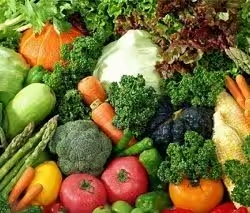(646) 760-6627

What Do Naturopaths Eat For Fertility?
Proper Diet for Fertility
Many of us underestimate the pivotal role that diet and nutrients play in fostering the development of healthy eggs and sperm, essential for conceiving a healthy baby. Optimal nutrition is crucial for fertility, as poor or merely adequate nutrition may disrupt hormonal balance, affecting ovulation and sperm quality.
Creating the healthiest possible sperm and eggs enhances the likelihood of successful fertilization, embryo implantation, and development. Maintaining excellent levels of minerals and vitamins in the body during the three-month development period of eggs and sperm is imperative. This nutrient-rich state also lays a foundation for a healthy pregnancy, considering the multitude of ingredients required for growing a baby.
Please review our tips below and contact Dr. Maura for additional information or a one-on-one consultation. Dr. Maura is a naturopathic fertility specialist.

Top Foods to Include:
A diet for fertility should incorporate a diverse array of whole foods daily, such as whole grains, lean meats, fish, fruits, vegetables (covering all colors of the rainbow), eggs, nuts, seeds, herbs, spices, and limited amounts of dairy. Choosing organic options whenever possible helps avoid hormone-disrupting chemicals present in some foods. This approach provides ample fiber, nutrients, healthy fats, proteins, and antioxidants, optimizing hormonal function and reproductive health.
Top Foods to Avoid:
While an occasional treat is acceptable, certain foods should be minimized for optimal fertility:
- Sugary foods, including excessive natural sugars like dates and honey
- Refined carbohydrates: white rice, white flour, white pasta, white bread
- Excessive dairy consumption (use it sparingly as a condiment)
- Deep-fried food
- Limit or Eliminate coffee (max one cup per day)
- Excessive black tea consumption (due to caffeine)
- Fatty meats
- All refined vegetable oils except for olive oil and coconut oil
Take a Quality Pre-Conception Multivitamin, Including Folate:
Recognizing that a perfect diet for fertility is challenging, especially considering factors like nutrient-deficient soils and food production methods, it’s advisable to supplement with a high-quality pre-conception multivitamin. Ensure it includes minerals and at least 400mcg of folate, which is crucial for preventing neural tube defects and supporting fertility.
Thoroughly Investigate Your Nutritional Factors:
Find a knowledgeable healthcare professional, such as a naturopath, to conduct comprehensive fertility-related tests and examinations. Even with a good diet and multivitamins, severe deficiencies or absorption issues may persist, requiring specialized supplementation and dietary adjustments. Your naturopath may also explore genetic factors influencing nutrient requirements.
If you’re planning to conceive or have been trying without success, initiate these steps promptly. Correcting nutrient deficiencies and adapting to a healthier lifestyle may take time, so assembling your support team and starting early will hasten the benefits.

